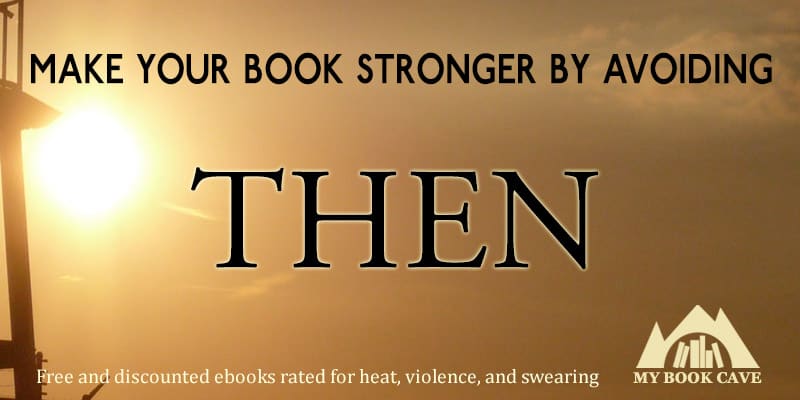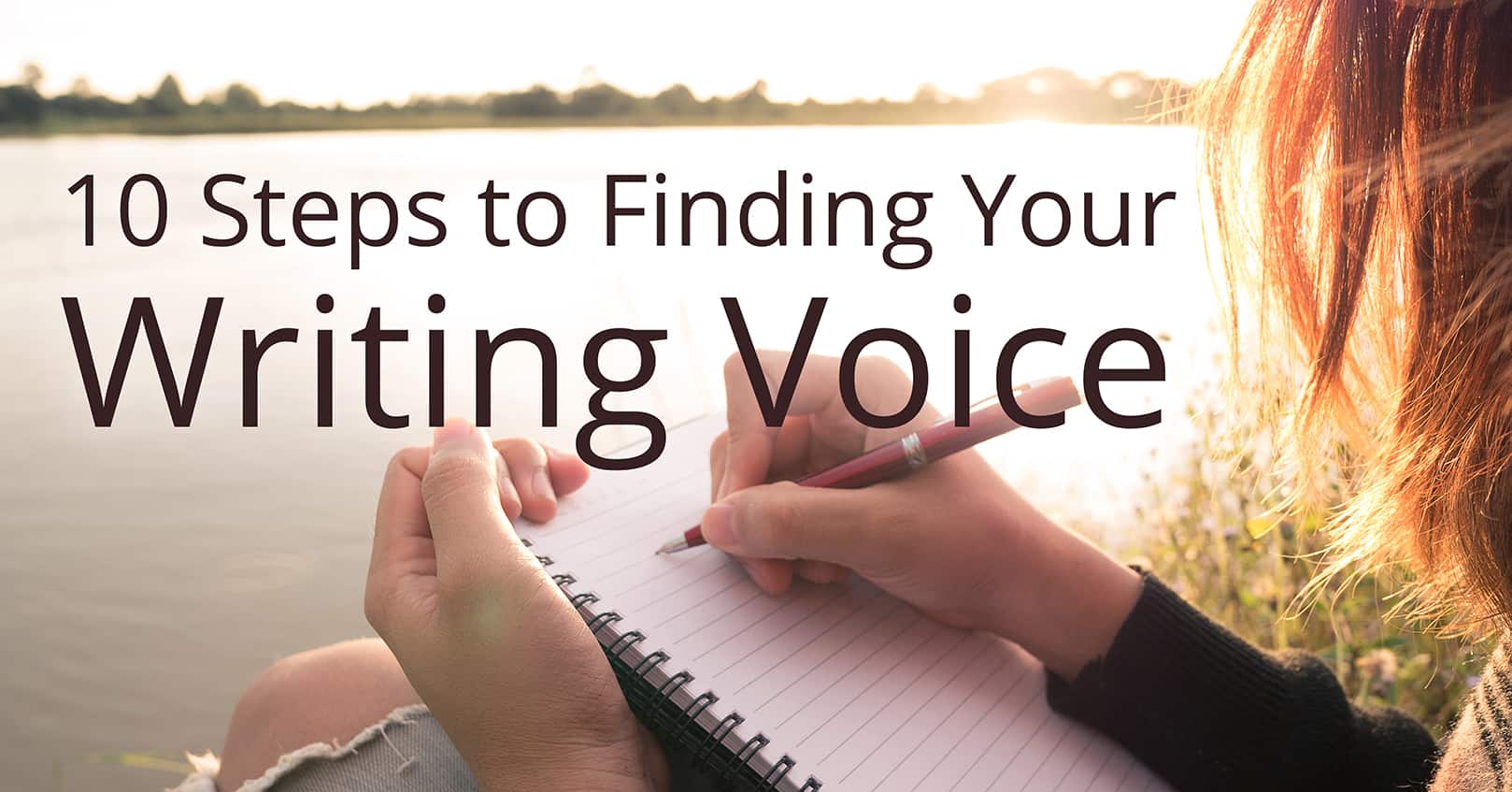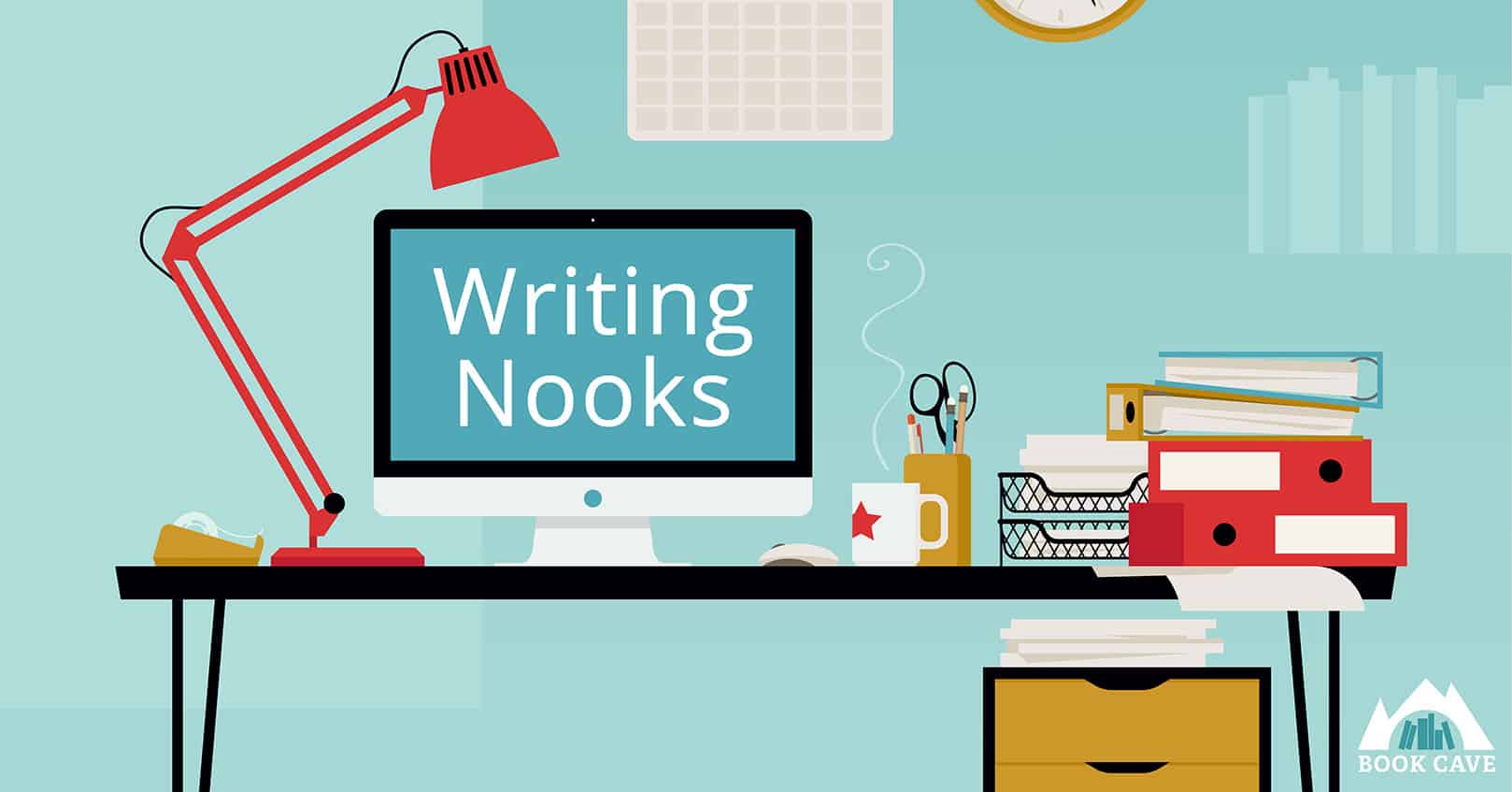
In English, the word “then” can be used as an adverb, an adjective, or a noun. However, it is most frequently employed as an adverb.
Adverb: He did his chores, then watched TV.
Adjective: The then president vetoed the bill.
Noun: Since then (that time), she’s been more friendly.
People Disagree on How Many to Use
You can see this word has many valuable uses in our language. However, the excessive use of “then” can quickly become repetitive and is a lazy way of showing sequences of events. At Book Cave we believe “then” should be used, but sparingly. Some “authorities” say writers should use it no more than once or twice in a chapter, while others believe readers won’t be upset if it’s used two or three times in a page. One famous author, who has sold millions of novels, does not restrain himself in the use of “then” and it sometimes appears five or six times in a page, and even two or three times in a paragraph.
So the actual number of times you use this word in a given space depends on your artistic judgment as a writer, but a good general rule of thumb is to avoid repetitious language wherever possible. There are a number of methods writers can use to avoid the excessive use of this word.
Eliminate the Weak Transition “then”
When recounting events, “then” and “next” are weak transitions. Try eliminating “then” with specific references to time or location, or by listing characteristics.
Weak:
As we drove into Mt. Pleasant, we first saw the welcoming sign. Then we saw Terrel’s market on the left and then the hardware store on the right. Then we saw Family Dollar, a pharmacy, and a doctor’s office. Next we saw the North Sanpete Hospital, also on the right. Finally, we turned left and reached the main drag through the town.
Better:
As we drove into Mt. Pleasant, we first saw the welcoming sign, followed by Terrel’s market on the left and the hardware store on the right. Farther down we saw Family Dollar, a pharmacy, a doctor’s office, and North Sanpete Hospital, all on the right. When the road made a turn to the left, we found ourselves on the main drag through the town.
“Then” vaguely tries to show that one event follows another, as in “That occurred after the other action.” But the fact that the second action appears after the first in the sentence already implies that order.
Weak:
He lit a cigarette. Then he made circles with the smoke. Then he put the ashes in the ashtray. Then he rose and left without looking at me or saying a word.
Better:
He lit a cigarette and made circles with the smoke. Flicking the ashes in the ashtray, he rose and left without looking at me or saying a word.
Use “then” in the Appropriate Places
Sometimes “then” is useful as a clarifying agent to communicate that two seemingly concurrent actions are happening in sequence. For example, “I wondered why the speaker’s English was so bad. Then I remembered that family poverty had prevented him from going to school.” “Then” is necessary in the second sentence to clarify the first sentence.
Examples From My Own Novels:
1. Simply drop “then.”
All you had to do was pop your belongings into a truck, drive a mile, and then zip up the hill.
All you had to do was pop your belongings into a truck, drive a mile, and zip up the hill.
Mary checked her children and then went to bed.
Mary checked her children and went to bed.
Maybe I should get married again. Then I wouldn’t have to waste so much time driving the children around.
Maybe I should get married again. I wouldn’t have to waste so much time driving the children around.
2. Rewrite the sentence to avoid “then.” (You can do this by using “and,” other conjunctions like “after,” “when,” “while,” etc., a participle, or some other structure. This will generally make the sentence stronger.)
He looked around the room, trying to figure out what was happening. Then he realized it was nothing more than a small earthquake.
He looked around the room, trying to figure out what was happening, and soon realized it was only a small earthquake.
Steven tucked his children into bed at ten o’clock, reminding them that they had to return to school the next day. Then he sat down to watch the evening news on Channel Two.
After Steven tucked his children into bed at ten o’clock, reminding them that they had to return to school the next day, he sat down to watch the evening news on Channel Two.
Mary checked on her children and then went to bed.
After checking on her children, Mary went to bed.
Mary checked on her children before going to bed.
She realized her mistake, and then she apologized.
Realizing her mistake, she apologized.












Ken, even the best writers fall into ruts. Thanks for digging us out.